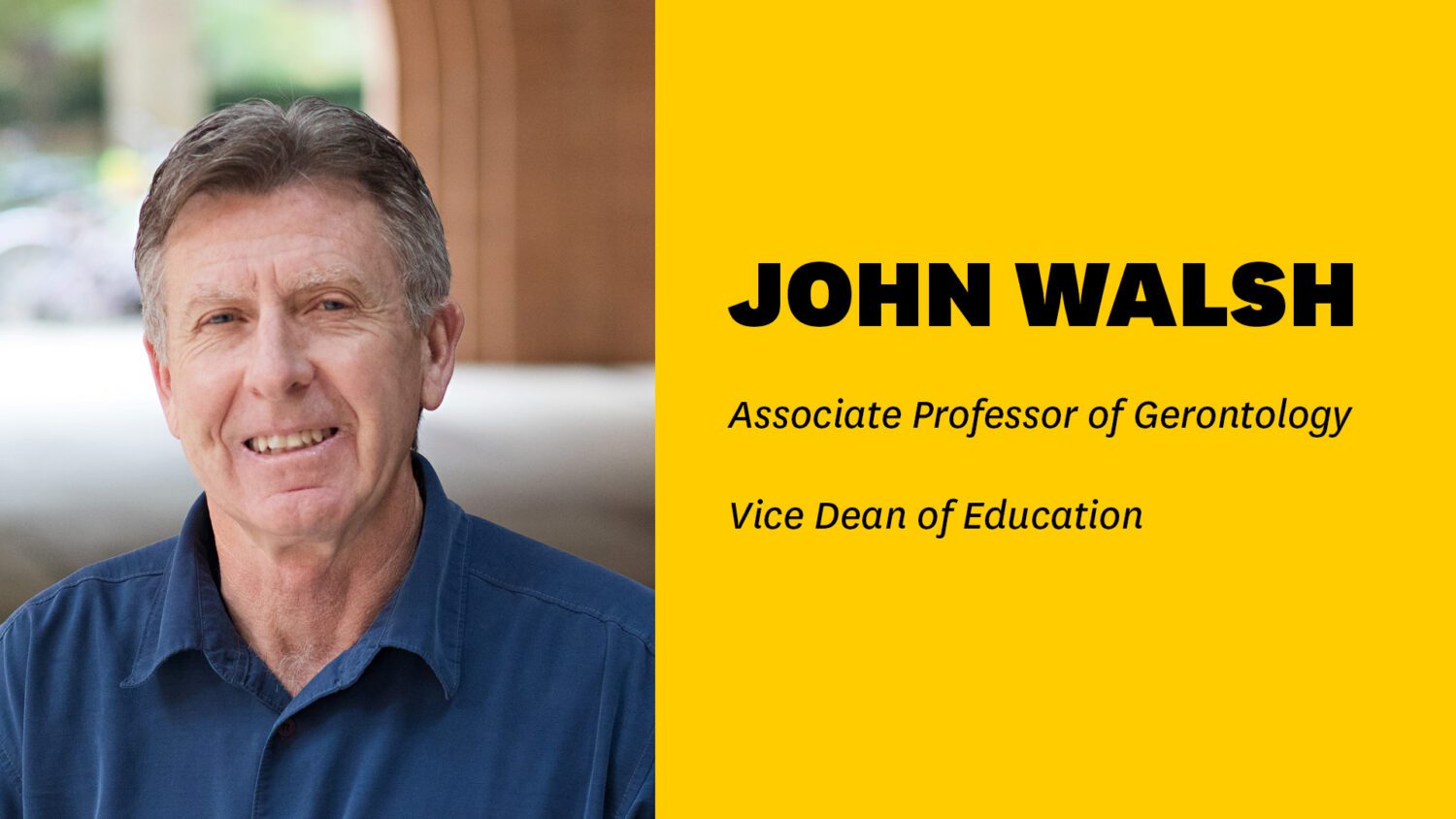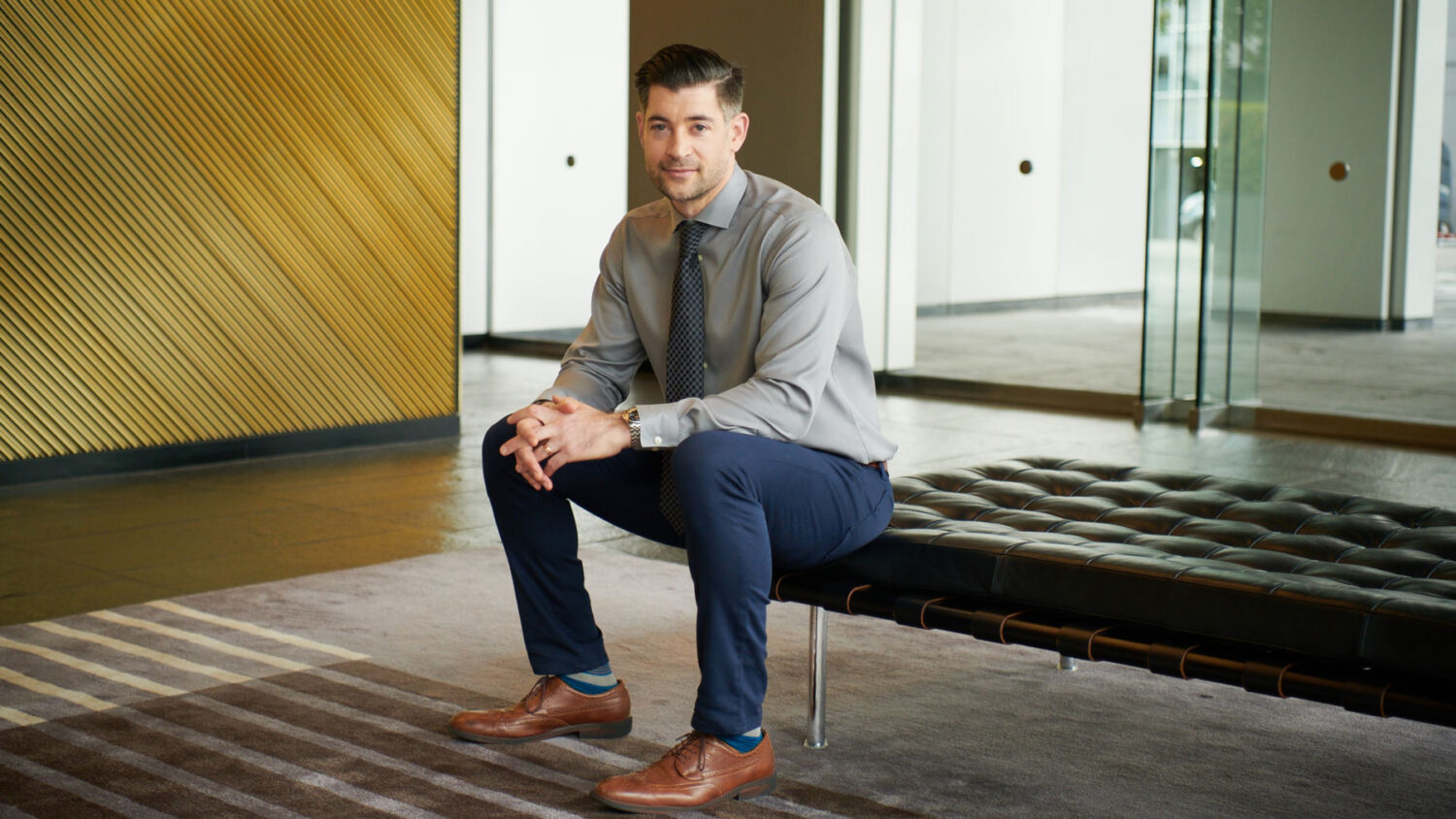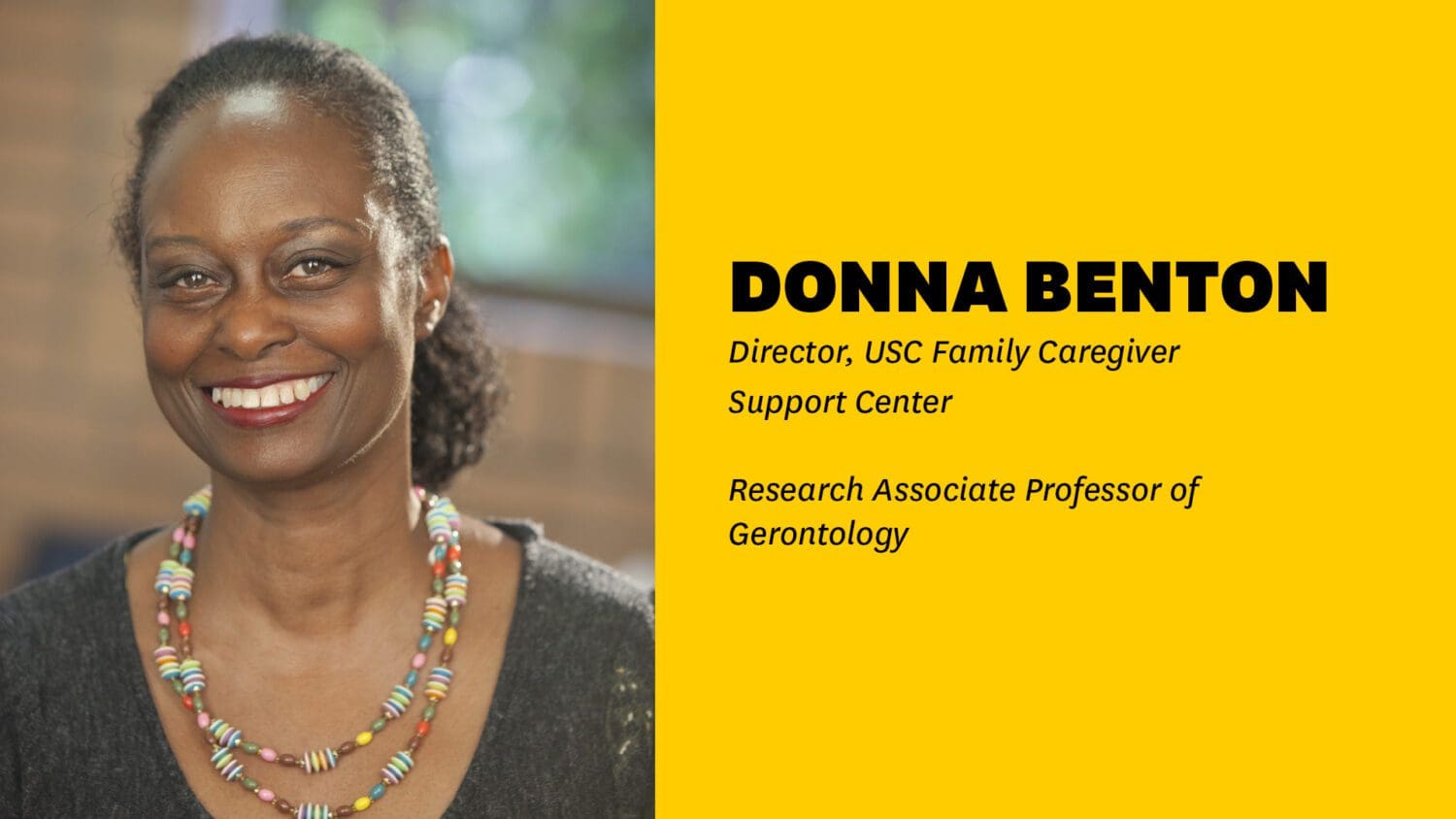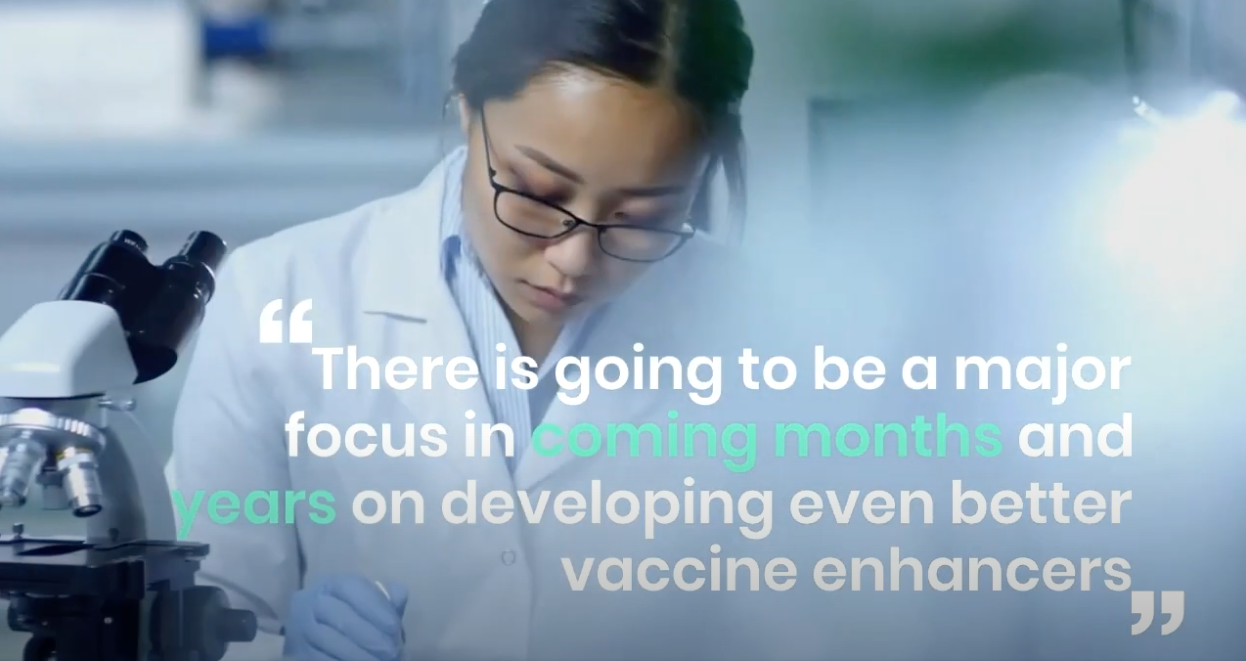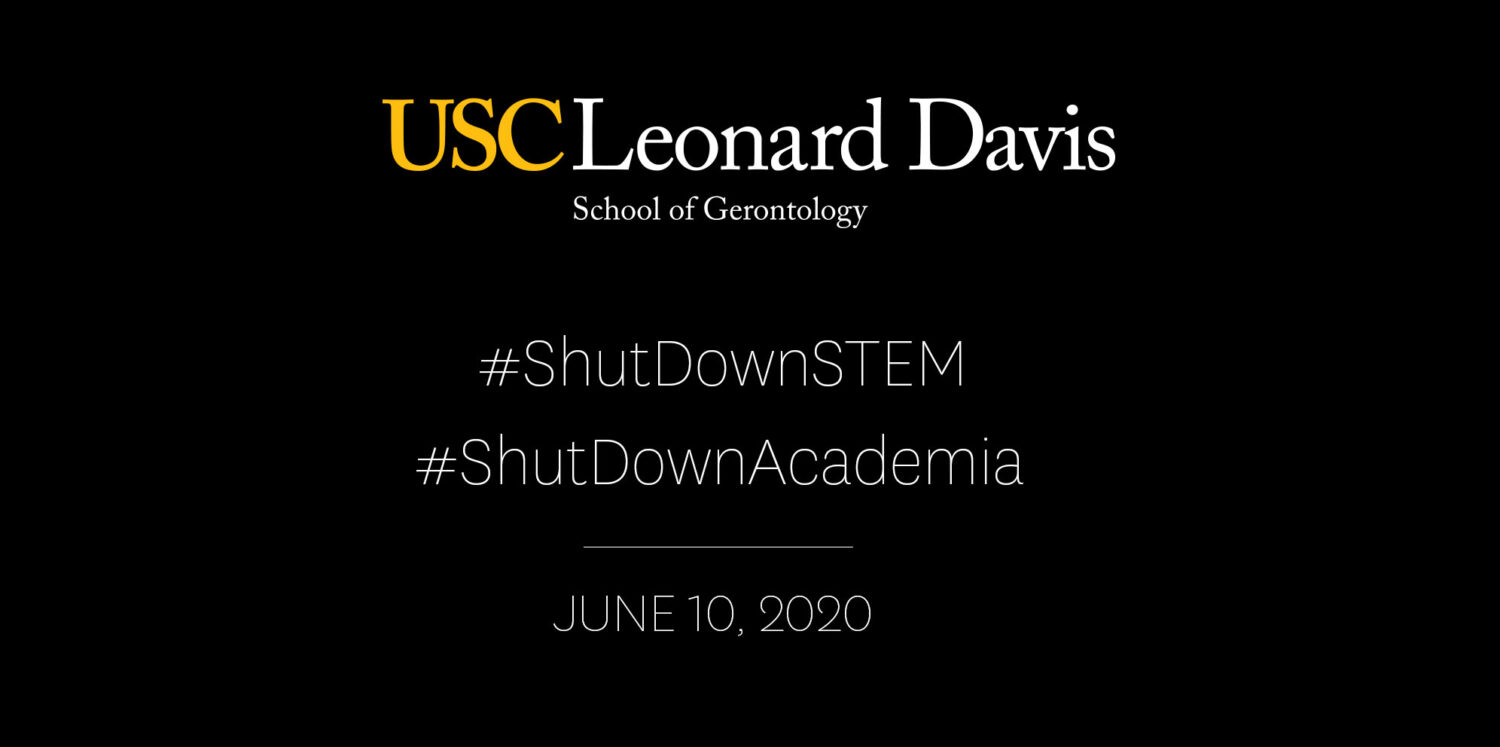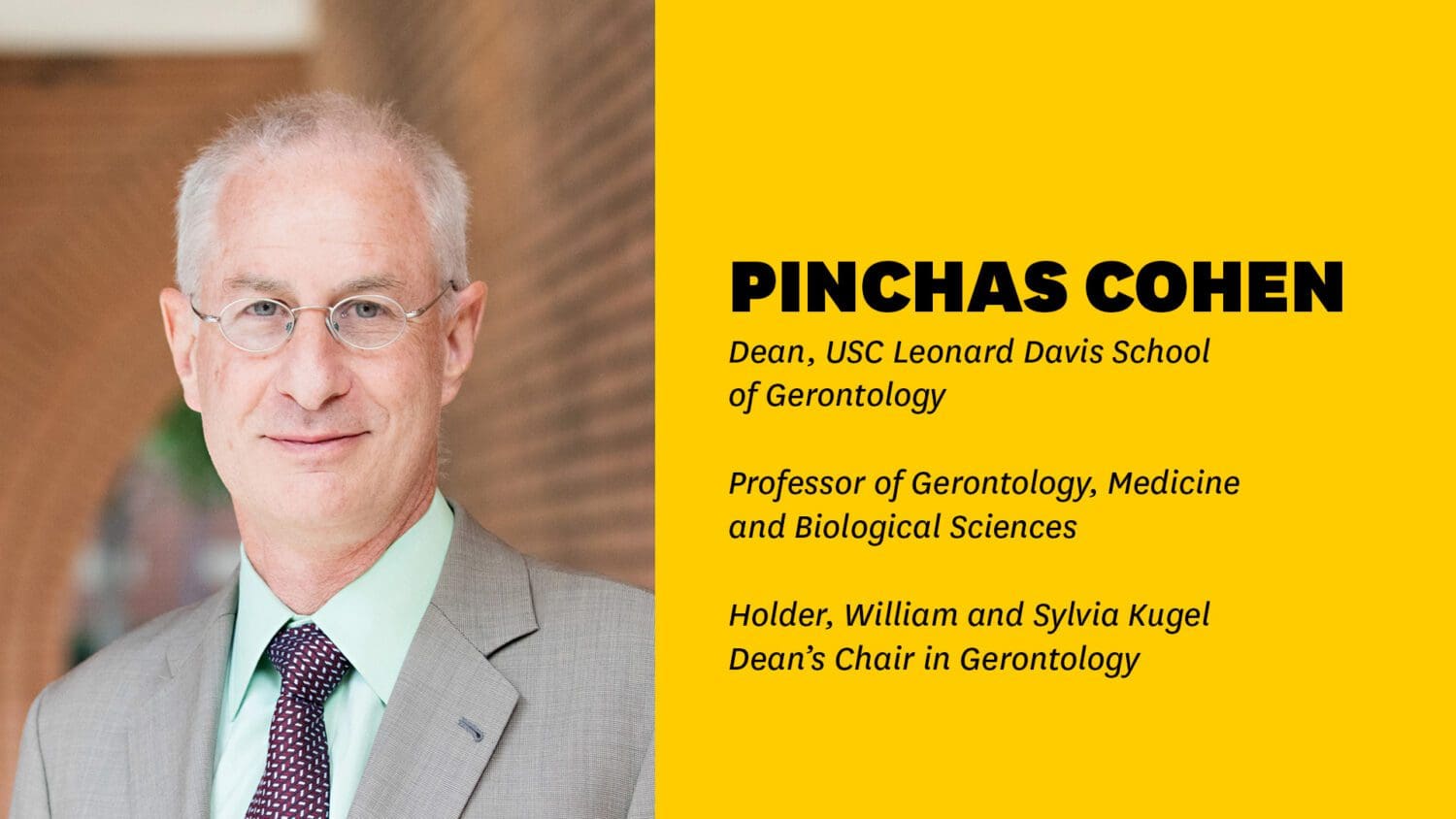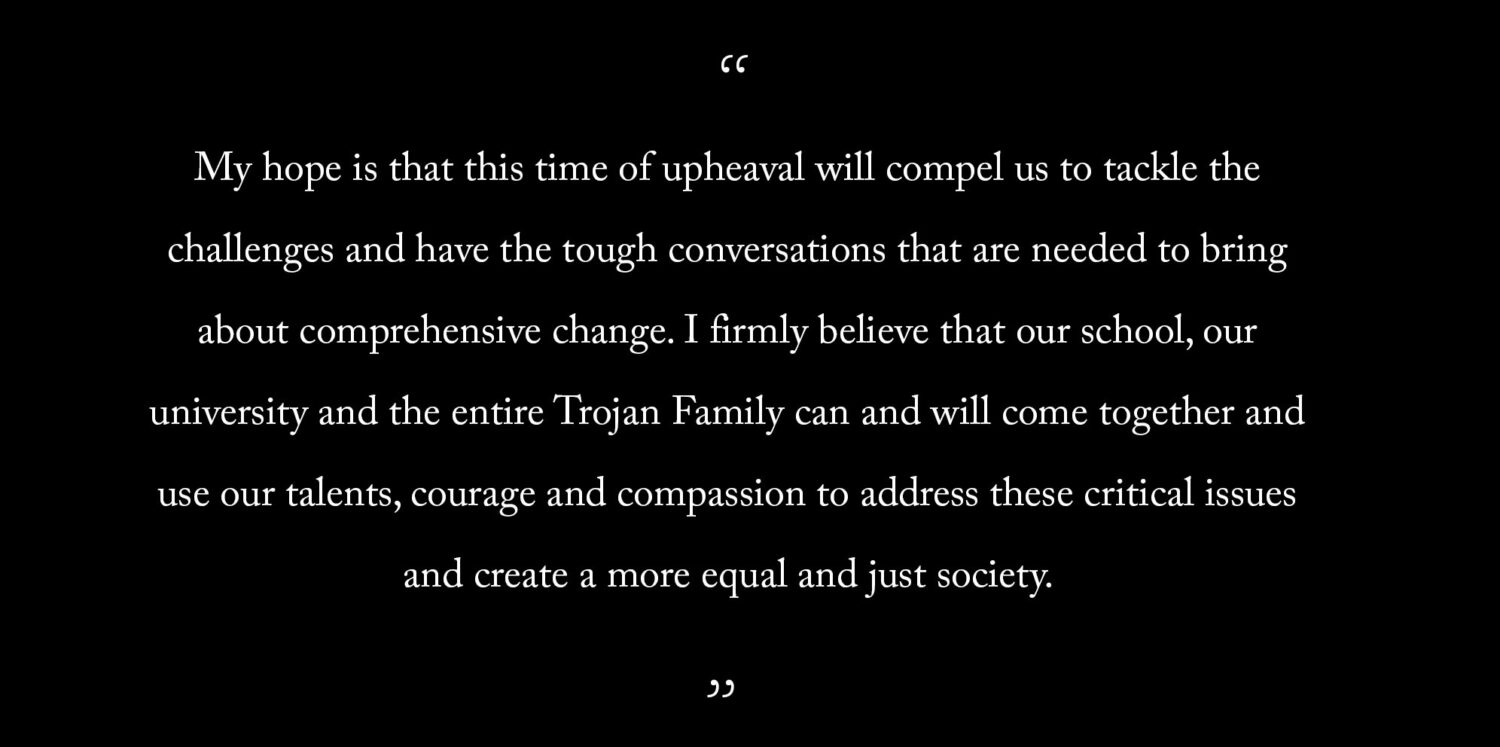The Washington Post featured an opinion piece written by alumna Lauren Luchi, MSG, on how we should challenge ageist biases and understand the multigenerational reality that exists in the United States in the midst of the presidential elections.
Professor John Walsh, vice dean of education at the USC Leonard Davis School joins Professor George Shannon, holder of the Kevin Xu Chair in Gerontology for a conversation on how teachers and students can make the most of online instruction and discuss how our life experiences can help us meet this challenging moment in time, both in the classroom and outside of it.
Quotes from this episode:
John Walsh
On isolation
Many students are feeling isolated right now and it’s obviously forced isolation and they just want to connect. The premed class I’m teaching right now, I have 50 students. And, and so here we are, two weeks into the semester and class ends at the hour 50-minute mark, and I’m having, 10 to 15 students stay afterward just to hang out and, talk about anything. And they just want to feel connected and, that’s a good thing because we got to help them through this.
On always learning
I always tell my students that I’ve never stopped being a student and that I always want to keep learning. And, so I will deliver a lecture, we’ll get centered on a topic and philosophically, I know from my reading and from looking at websites or watching videos about how what we’re discussing applies to furthering society or helping you in the workplace. But I love hearing the actual application from students where they’re down, boots on the ground, and they’ve experienced this. And they may even say,” those guideline or those principles are all good, however, in my experience… ” And, and then you put that in your back pocket… and then you use that in future lectures. I’m constantly learning and I tell the students,, I don’t know everything and I really want to learn from you.
On online classrooms:
Well, I think this is a game-changer. It was forced down our throats with a pandemic, but this is a game-changer. We, as a program have always been a leader at USC in terms of online education and we can’t stop being a leader. We just got to keep up on it. These platforms do offer a level of interactivity that we weren’t utilizing before.
On collaborative exams
I was just so amazed and so excited watching the active learning that went on during these collaborative exams. I know now that when we are back in session, // I’m going to be sitting there in the auditorium, I’m going to break people up into groups of six or seven, and they’re going to do the collaborative exam right there in the auditorium because it’s, I think it’s a really cool way to learn.
George Shannon
On his transition from elevator repairman to successful actor to USC professor
I was 55 years old. I didn’t have an undergraduate degree. So I spent two years in undergrad getting my undergraduate degree because I had hundreds of units where they were scattered all over in different things that I had touched upon. And then I went into the master’s program and did that in two years and was accepted into the PhD program. And so yeah, so that’s a long-winded way of saying there are, there are lots of things that you can do that come to an unexpectedly. I always say, if someone opens a door for you, don’t slam it in their face, go walk in and see what’s going on, because it might be an opportunity that can change your life in a very positive way as it did for me. I had four kids and a couple of wives and lots of bills and, and I survived all of that because I didn’t turn my back on something that I had never thought of before.
If something presents a change or a mode that you’re not expecting, it may be something that can lead you to something that’s even more exciting that gives your life more meaning. People ask me if I’m thinking about retiring and I’m astonished. Of course, I’m, first of all, astonished that I’m 80 years old, but secondly, I’m further astonished that anyone would think that I would ever consider retiring as long as I have my faculties about me and I’m able to perform. Because life is an endless performance as long as it lasts.
On online classes
in some ways, from my perspective, I like Zoom because I have on the screen the 40 or 50 students, so I may have in class and I can pick them out and ask them specific questions instead of being in the auditorium where they’re all trying to hide in the back of the room. And so I, I find there are some really some positives from this experience.

